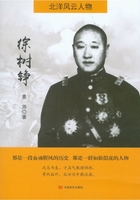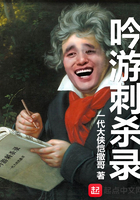For while collective bargaining may enable the employees to secure fair terms where they are dealing with competing private businesses, it cannot where the sole employer is the State or Municipality.The latter is technically able to impose its terms upon any group of workers who are specialised for the work it offers.Recognition of the Union, and an admission by the management of the right of union-officials to consultation and discussion of conditions of employment, do not really furnish any basis of settlement, though they may often ease a difficulty and remove misunderstanding.What is required is a statutory right of appeal to a public authority, outside of and independent of the particular department, competent to take that wider view of public interest from which the departmental public official is, by the necessity of his situation, precluded.That claim of the public employee is frequently misunderstood.It does not arise from any real or pretended opposition of interests between the public and a group of its employees, and a claim on the part of the latter that the public shall make some concession or sacrifice to their particular group interest.There is no such real opposition of interests.The valid claim for an appeal from the arbitrary decisions of the public departmental managers is based upon the fact that the latter are disqualified for a full impartial view of the public interest, so far as that public interest is affected by the conditions of employment of the employees under them.The fact that the employees are often likely to make unreasonable demands and to claim in wages, hours and other conditions, an excessive share of the public revenue, does not affect the validity of this contention.For practical convenience official departmentalism exists.But this departmentalism involves a business management essentially defective from the standpoint of public welfare, inasmuch as it tends to depreciate or overlook the interest which the public has in the total welfare of that section of the public which is in its direct employment.
§11.Of course, in treating the issue of a public business as if it consisted simply in reconciling the immediate interests of the consuming public with those of the public employees, we have intentionally excluded another view which may often be more important.State socialism may be run primarily in the interests, neither of the citizen-consumer nor of the employer, but of the bureaucracy, who here occupy the place of the capitalist-managers under private enterprise.The official may be held to be naturally disposed to magnify his office and to abuse any power which can be made to subserve his personal or class interests.Practical permanency of tenure of his office, and the special knowledge which it brings, enable him, with safety, either to neglect his public duties, or to encroach upon the liberties of citizens, according as he is lethargic or self-assertive.
He may squander the resources of the public upon ill-considered projects, or in serving the private interests of his friends.Or, he may practice a tyrannical or a niggardly policy towards his employees, not through a narrow interpretation of public economy, but from sheer carelessness or from defective sympathy.These charges against officialism are too familiar to need expansion here.However carefully the public service is recruited, such abuses will be liable frequently to occur, and the structure of government should be such as to supply effective checks and remedies.
NOTES:
1.Adam Smith, by opening his Wealth of Nations with a dissertation upon the economy of division of labour, without explaining that this economy rests upon a prior conception of cooperation, unwittingly assisted to set English Political Economy upon a wrong foundation.
2.Even this measure of working-class progress has been checked during the last decade.Recent statistics show that in Great Britain and in most other Western civilised countries, the rise of prices since 1896 and still more since 1905 has not been attended by a corresponding rise of wages, though profits and rate of interest have risen at least equally with prices.
3.The ordinary profit-sharing scheme is vitiated, alike in theory and in practice, by the erroneous attribution of the concept 'profit' to that which is 'shared.' This is recognised at once when the experiment is properly described.For the ordinary profit-sharing scheme begins by laying down a normal rate of wages and of profits, based upon current facts of commerce.The provision for this standard wage and standard profit constitutes a first charge upon the takings of the business.Under normal conditions this would absorb the whole.But the workers are now told that, if they produce an additional income, they shall have in extra wages half of it.
Now the whole of this additional income is due to the increased efficiency of labour under the new stimulus.For if any more capital than before is required, provision for its payment at the normal rate is made before account is taken of the so-called profit that is shared.No more ability or effort of superintendence is required; in fact it is usually contended that the greater care taken by the workers renders less supervision necessary.Thus 'profit' is a misnomer for what is 'shared.' For this so-called 'profit'
is entirely produced by greater intensity, skill or care on the part of labour.The fact that labour gets only half, and that only after the whole of what should be called the deferred 'wage-fund' has served to meet any deficiency in the sum required to pay the normal dividends, explains why most of these schemes fail after a short trial.The proportion of the extra-product (evoked entirely by the increased stimulus applied to labour), that is actually paid to labour, is too small to maintain the efficiency of the stimulus.When these profit-sharing schemes succeed, the success is nearly always traceable to the fact that in the original agreement, the benevolent employer has fixed his rate of interest or salary, or both, upon a lower scale than is current in the trade, so that the stimulus to labour is effective.
4.Building Societies are only in a very restricted sense cooperative.
5.In 1909 the aggregate sales at the Retail Stores amounted to £70,423,359, or about 10% of the working-class income, and the profit (including interest paid on shares) was £10,851,739.














